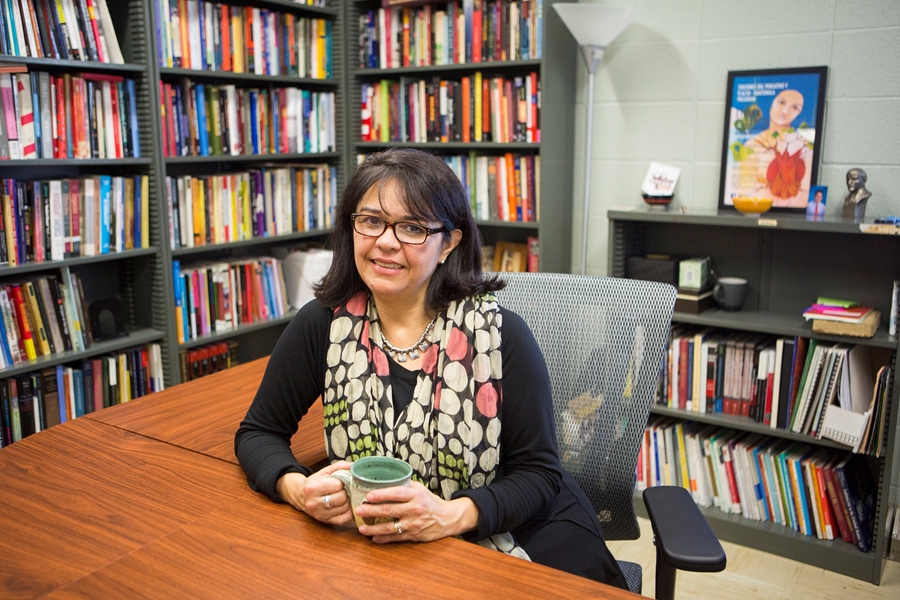Cecilia Menjívar, Foundation Distinguished Professor in the Department of Sociology at the University of Kansas, will present a lecture entitled, "Immigration Law, Hostile Contexts, and the Membership of Latino Immigrants" Tuesday, April 4 from 5:30-6:30 p.m. in Giffels Auditorium (201 Old Main) on the University of Arkansas campus.
This lecture is part of the J. William Fulbright College of Arts and Sciences Latin American and Latino Studies Program's annual Lecture Series.
Menjívar's research focuses on immigration, family dynamics, gender, religious institutions and violence. She explores the impacts of the legal regime on immigrants and the effects of living in contexts of multisided violence on individuals, especially women. Her work on immigration is focused on Central American immigrants, while her examination of violence centers on Latin America.
Tuesday's lecture will address the various expressions of membership among Latino immigrants in the context of a "perfect storm" of an expanded enforcement regime, laws that magnify the definition of crimes for immigrants, and the hostile context that sustains negative images of Latino immigrants today.
Her book Fragmented Ties: Salvadoran Immigrant Networks in America (California, 2000) was the winner of the William J. Goode Outstanding Book Award from the American Sociological Association and was listed by Contemporary Sociology as one of the twelve most influential books on the family since 2000.
Her other books include Enduring Violence: Ladina Women's Lives in Guatemala (California, 2011), winner of the Mirra Komarovsky Book Award and the Hubert Herring Best Book Award, and Immigrant Families (Polity, 2016). She is also co-editor of several volumes including Constructing Immigrant "Illegality": Critiques, Experiences, and Responses (Cambridge, 2014), Latinos/as in the United States: Changing the Face of América (Springer 2008), and When States Kill: Latin America, the US, and Technologies of Terror (Texas, 2005).
Menjívar has served on the National Research Council's Committee on Immigrant Integration at the National Academy of Sciences and was a Senior Fellow at the Immigration Policy Center in Washington D.C. She is the recipient of a John Simon Guggenheim Fellowship to write a book on immigration and legality in Arizona.
This lecture is organized and sponsored by the Latin American and Latino Studies program, with generous support from the Department of Sociology and Criminal Justice. The event is free and open to the public.
About the Latin American and Latino Studies Program: LAST is an interdisciplinary area and ethnic studies undergraduate program in the J. William Fulbright College of Arts and Sciences at the University of Arkansas. It provides in-depth exposure to the key geographic regions, historical trajectories, social modes, languages, and political, economic, and cultural systems of Latin America and the Latino United States. We sponsor a study abroad program, a high-profile lecture series, and cultural events throughout the year. The program's curriculum draws from history, political science, anthropology, art history, sociology, English, economics, music, and language, literature and culture. Students may combine the Latin American and Latino Studies co-major (21 credit hours) or minor (15 credit hours) with a major in another field, enhancing their preparedness for employment with government or service agencies, corporations and enterprises dealing with Latin America and the Hispanic U.S., for teaching or international careers, or in preparation for other advanced degrees. More information about the program may be found at last.uark.edu, or follow us on Facebook.
Topics
Contacts
Kirstin C. Erickson, associate professor
Department of Anthropology
479-575-5600,
Andra Parrish Liwag, director of communications
J. William Fulbright College of Arts and Sciences
479-575-4393,
